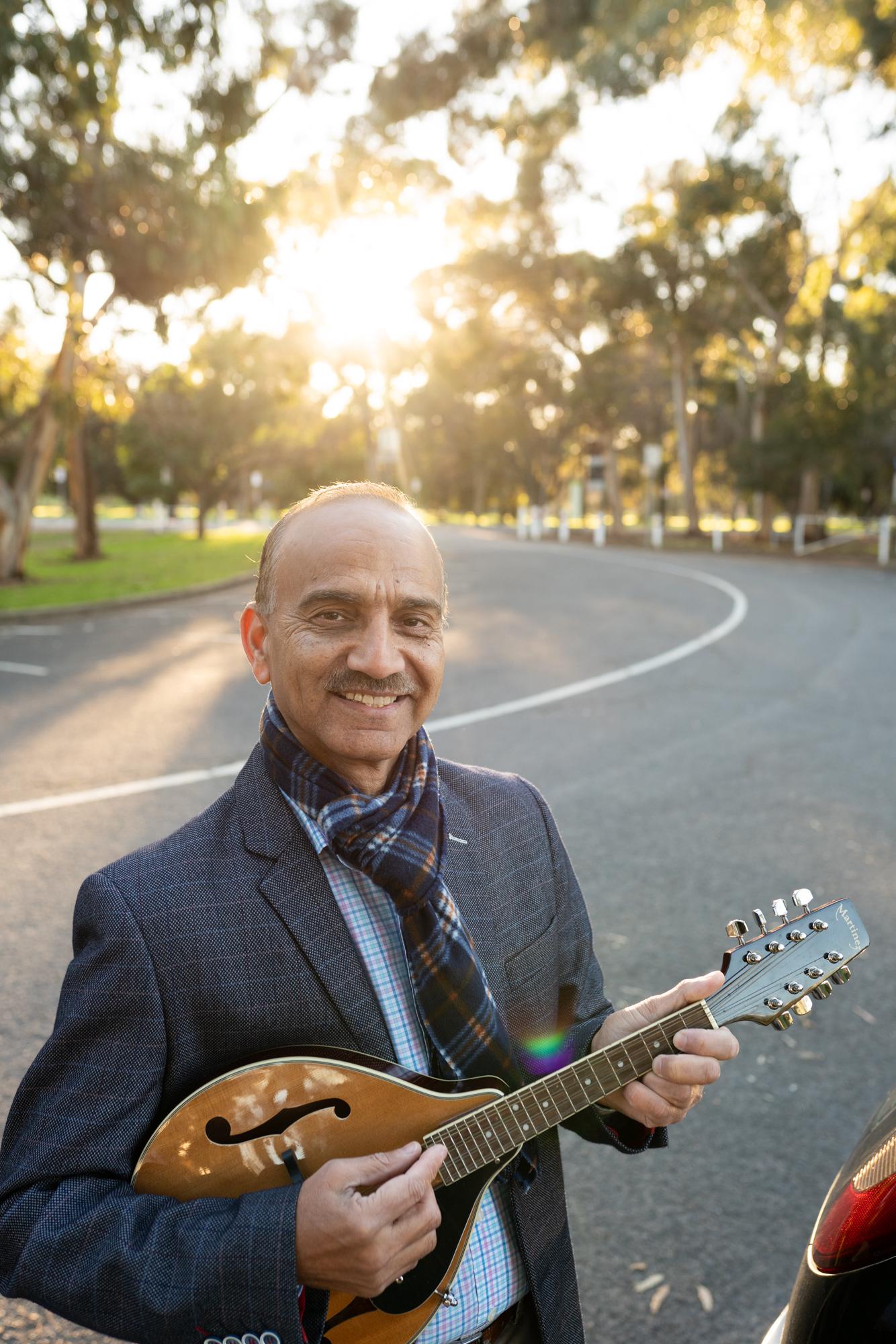Connected Conversations | Mohammad Afzal Mahmood
With a strong passion for community and working in developing countries, Dr Mohammad Afzal Mahmood has been in high demand for his advice on public health outcomes both here and overseas. Taking his mobile office to some of Adelaide’s most picturesque locations we chatted to Afzal, riverside, about his work at the University and how he has adapted to the current needs of his students.
Please tell us a little bit about yourself.
Hi! I am Afzal. I’m a senior lecturer and Deputy Postgraduate Coordinator at the School of Public Health. Much of my research and development work is based in developing countries, where I collaborate with the ministries and departments of health and universities for health systems development, quality of care improvement and community development. I enjoy this work tremendously as it has provided me opportunities to work with and learn from many people and communities around the world, including those in Pakistan, Australia, Kenya, East Timor, Indonesia, China, Myanmar, Saudi Arabia and Papua New Guinea.
As a medical student in Pakistan, I was a member of a student’s group humanity services where we assisted governments, community groups and health care institutions to organise blood banks and mobile eye care in rural settings. Later I worked in some of the squatter settlements of Karachi. Those experiences of working with kind and amazing people who sadly suffered from inequities and poor health outcomes gave me a passion for the work that I have been doing for the last 30 years.
Much of my maternal health and quality of care improvement work in Indonesia—where I have trained many health services professionals and managers in the public sectors—is recognised at the highest levels contributing to health care development at the national level. With my colleague’s Dr Chen Au Peh and Associate Professor Julian White I led the establishment of one of the largest and most successful health system development projects in the world, which is focused on prevention and quality of care for snakebite patients in Myanmar.
I live in Campbelltown with my wife and am a member of the Rotary Club of Morialta, which provides voluntary professional support for charitable work in East Timor, Papua New Guinea and Australia. I am the proud father of a lovely daughter and a wonderful son. In my personal life, one of the most rewarding things, is the role of grandparent to our three sweetheart grandkids, Idris, Rayana and Ibrahim. Another passion of mine is working for community harmony and cultural celebrations. For my community work I received the 2009 Governor’s award for promoting community harmony and was nominated as a Rotary Paul Harris Fellow for community service.
The Return to Campus Roadmap is now in place. What are you most looking forward to about being back on campus?
I am enjoying returning to campus—although I recognise that not everyone is comfortable yet to work or study in a face-to-face environment. Considering those various needs, I have taken up the challenge to offer my courses in both online and on-campus modes simultaneously, starting with the one-week intensive International Health course I taught in July.
What aspects of teaching online do you enjoy the most? And… what are the parts that you do not like so much?
Over the past couple of months, I have been parking my car by the river, or a hill, or near the golf course. I prefer to work in a space where when I look up from my computer screen, I see nature. I love walking and the breaks during online teaching allows me a walk down along a stream or a beautiful path. Having said that, being one who loves to interact with people and community, at times I have felt the loss of personal connectedness. Now I invite friends and colleagues to a cup of tea at regular intervals at least once or twice a week!
How do you set boundaries when working at home between your work life and your home life?
Whether working from home or office, work never ends for faculty members. For the last three decades I have been output oriented rather than tuned to an ‘arbitrary notion of time’. Additionally, I consider the University my home as well.
Were there any outside of work challenges that impacted you over the past few months?
As a public health specialist, many community and professional groups in Australia and overseas regularly asked for my advice and suggestions about infection prevention and pandemic control measures. For example, I contributed to medical care providers and community webinars to help provide evidence-based information and protocols by the government public health authorities, and to alleviate various myths that circulated around the communities. With family and friends living across almost all continents and with extensive links with professionals and communities across many countries I have been concerned about the health and wellbeing of not only my fellow Australians but also of all people around the world.
What is the one thing you are most looking forward to doing or seeing when you are back on campus?
Chats, friendly or philosophical, with colleagues and friends, around the corridors with a cup of coffee in hand.
Name three things you won’t miss about this current moment in time.
A constant stream of ‘doomsday messages and queries’ by some of the friends, community members and even health care providers who developed an unmanageable sense of fear. It was challenging to help keep them positive. Sharing some poetry, a few tunes on my Mandolin and some folk singing helped!
And the three things you won’t forget…
My old car, which is a lemon that I was about to present to a wrecker, turned out to be a great room for Zoom meetings, or some alone time or using it to practise music!
All the good places, such as wetlands, rivers, billabongs, botanic gardens where I sometimes parked my mobile office.
No traffic jams.

